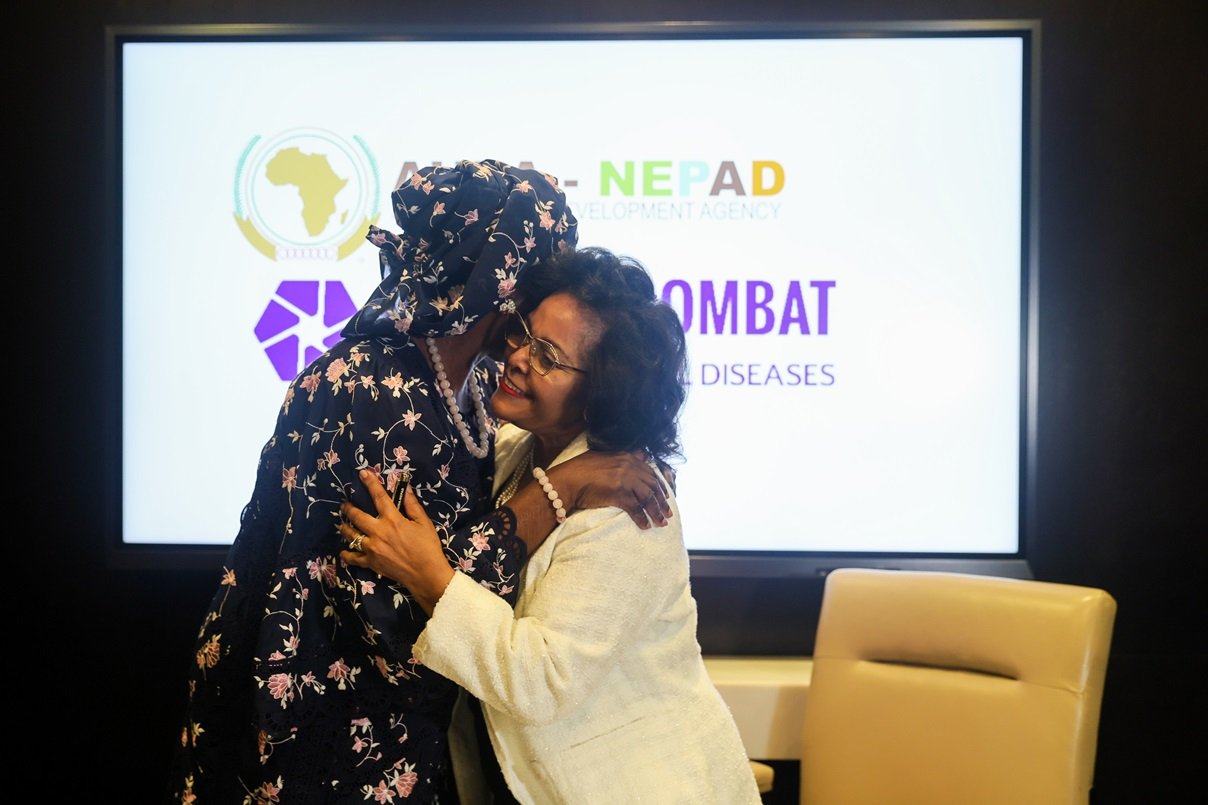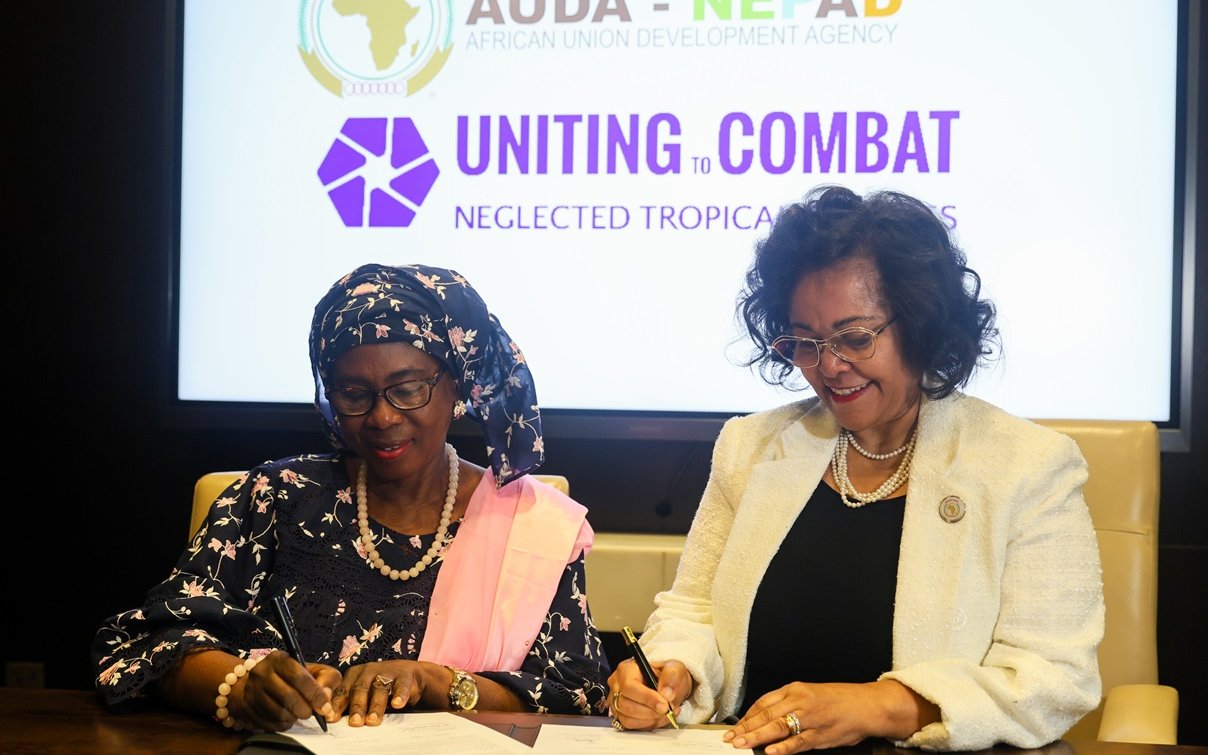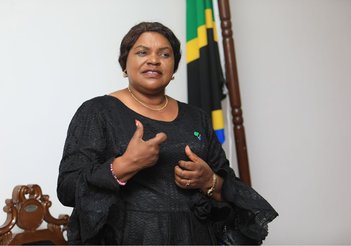AUDA-NEPAD, the African Union’s development agency, and Uniting to Combat Neglected Tropical Diseases (NTDs) have signed an historic agreement which will strengthen efforts and mobilise resources to eliminate NTDs across the African continent.
This partnership, formalized during the 45th Ordinary Session of the Executive Council and the 6th Mid-Year Coordination Meeting of the African Union, represents a significant milestone in the fight against NTDs in Africa.
NTDs are a group of twenty-one diseases and infections that can disable, disfigure, and be fatal. They disproportionately affect those living in low-income, hard-to-reach areas. These diseases, which include conditions such as river blindness, trachoma, and lymphatic filariasis, perpetuate cycles of poverty and hinder economic growth and development. Currently, more than 1.65 billion people worldwide are at risk of NTDs, with the burden in Africa accounting for more than 35%. Addressing NTDs is crucial for improving health outcomes and fostering sustainable development across the continent.
In recent years, countries across Africa have made incredible progress combating NTDs, despite facing significant obstacles such as the COVID-19 pandemic, global supply chain disruptions and severe weather events. Twenty-one countries in the African continent have now eliminated at least one NTD, with several countries eliminating multiple NTDs, including Togo and Benin. However, to eliminate these diseases, increased resources, actions and political will are essential.
The partnership between AUDA-NEPAD and Uniting aims to jointly implement and mobilise resources to support AUDA-NEPAD’s NTD Programme. This will include leveraging AUDA-NEPAD’s ongoing domestic health financing programme and efforts towards overall health systems strengthening to support AU Member States’ capacity to address and eliminate priority diseases, such as NTDs. Additionally, the partnership will undertake high-level advocacy to enhance political will to achieve these objectives.
Signing this agreement on behalf of their respective organisations were Ms. Nardos Bekele-Thomas, the first female CEO of AUDA-NEPAD, and Dr. Isatou Touray, Executive Director of Uniting to Combat NTDs and former Vice President of The Gambia.
At the signing, Ms. Bekele-Thomas emphasized the importance of the partnership, stating,
“To create the Africa we want, strong collaborations and value-adding partnerships will be key in addressing priority diseases such as NTDs. Eliminating these diseases is critical to future economic growth and sustainability on the continent and will create an incredible return on investment in a political environment where every dollar matters.”
This partnership exemplifies how African leadership is showing the world that NTDs can be defeated. The signatories of the agreement also underscore the importance of female leadership in driving development across Africa. Both Ms. Bekele-Thomas and Dr. Touray have devoted their careers to the continent’s progress, championing causes that improve health, social outcomes and economic opportunities for all.
AUDA-NEPAD is tasked with implementing the policies and frameworks of the African Union. It focuses on high-impact projects that translate the AU’s continental strategic development frameworks into national development priorities. The signing of this agreement further demonstrates the African Union’s deep commitment to ending NTDs, building on the momentum from the signing in May 2022 of the Common African Position and Continental Framework on the Control and Elimination of Neglected Tropical Diseases (NTDs) in Africa by 2030. The Common African Position and the Continental Framework are important frameworks that are driving a unified vision, roadmap, progress and resources to tackle NTDs in Africa.
Said Dr. Touray,
“This strategic partnership marks a pivotal step in our collective efforts to end NTDs across the African continent. By mobilising resources and political will, we can achieve our goal of eliminating these diseases and improving the quality of life for millions of Africans. The commitment and collaboration demonstrated today set the stage for a brighter tomorrow, where NTDs are a relic of the past and Africa’s potential is fully realized.”




